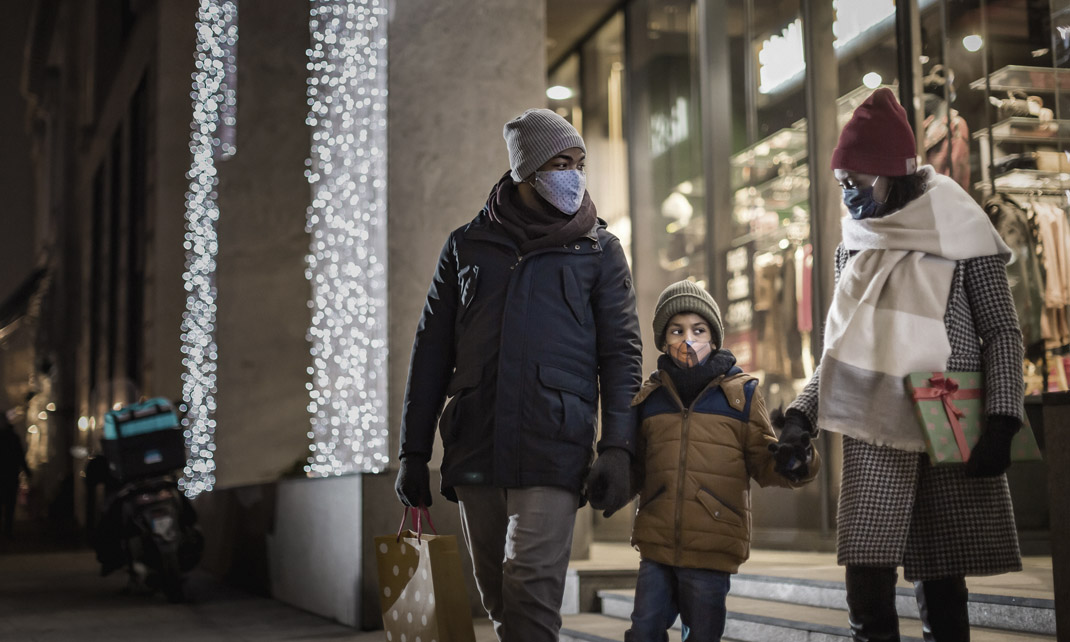Almost two years into the pandemic, COVID-19 continues to impact travel and shopping decisions in the United States, according to the Oliver Wyman Forum’s ongoing global consumer sentiment survey.
While many are eager to travel, concerns about coronavirus are anchoring them home or limiting their vacation plans to domestic destinations, according to our monthly survey. Related supply chain issues and rising prices also are affecting routine and holiday purchases.
The most recent surge has made it feel like consumers are back to square one, with further restrictions on consumer activities and, especially, international flying, with some countries now requiring arrivals to quarantine, while others have banned travel.
The biggest impact on year-end habits is in travel, as the coronavirus is still top of mind for consumers. Perhaps tired of restrictions and extended periods of isolation since the outbreak, 43% of respondents said they had an increased desire to travel because of the pandemic.
Despite the appeal, 45% have no plans to do so over the three months starting at the beginning of December. Their biggest concern, cited by 37% of respondents, is contracting COVID themselves. That may explain why 67% are considering travel by car and why many people are avoiding modes of transport that feel less safe; 45% would not consider a cruise because of COVID concerns; 34% would not take the bus; and 27% would not take a train. Consumers also are concerned about the health and safety of their family and friends, with 30% citing risk of COVID as a reason for why they would not want to travel. In addition, 36% of respondents were worried about canceled or delayed flights and 32% about travel restrictions.
COVID isn’t the only challenge. Consumers are changing their shopping habits, too, because of concerns about supply chains and rising prices. Groceries are the top worry: Overall, 62% of people are at least somewhat concerned that global supply chain issues will impact their holiday season. One reaction has been to start holiday shopping earlier than usual: 46% said they had done this.
Another cause of anxiety is prices, with a whopping 79% of respondents reporting that inflation has impacted their lives. Only 21% said there had been no impact from inflation on their ability to afford the products they normally purchase. And 57% were concerned that inflation might impact their ability to buy gifts in the holiday season. A key question divides the consumers, economists, and policymakers alike: Is this surge in inflation persistent or simply transitory? Regardless of the answer, consumers are feeling the impact and have already adapted their shopping behaviors.
Groceries stood out by far in terms of price rises: 80% of respondents had noticed higher prices. The next-highest response rate was for apparel, which 27% of people had noticed rising in price. Across all types of goods – from furniture to groceries – half or more of the respondents believe that prices are up somewhere between 5% and 15%. Fears of continued price rises are another factor pushing people to buy things in advance: 43% said they had done holiday shopping earlier than usual for this reason.
As the year comes to an end, nearly two years after the pandemic has started, it appears that change and disruption continue to be all around us. With omicron surging, it’s a stark reminder that we are not close to being out of the woods yet, and consumers will continue to adapt and change as we enter the new year. As the adage goes: “Old habits die hard”, but what we’ve seen is that they can also be pretty flexible.

